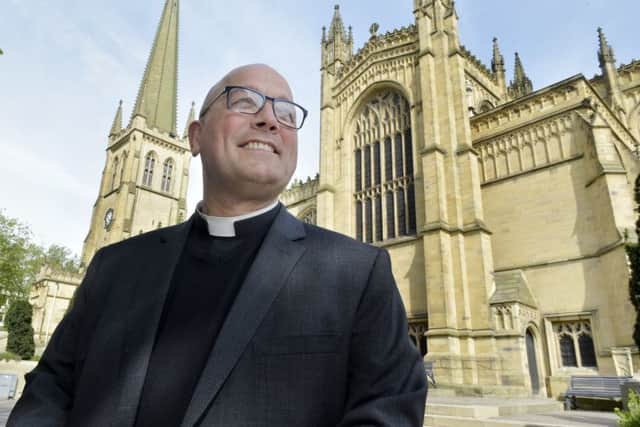Dean of Wakefield: Why our Cathedral is for the people
I think this manifests itself in an increasing tendency to use the terms English, Welsh, Irish, and Scottish rather than British – and this, in turn, contributes to a sense of fractured identity, resulting in the type of angry public discourse we have all experienced over the past couple of years. Brexit is perhaps more a symptom of this than a cause.
People are increasingly being corralled unwittingly into certain positions – corralled by social media, traditional media, being encouraged to take positions about things. Politicians are forced into not saying things or saying things because everyone wants to know where they stand on a particular issue. And all of us are being encouraged to do that.
Advertisement
Hide AdAdvertisement
Hide AdI want Wakefield Cathedral to be a place where people can reflect on these issues without feeling they are being forced into a particular position; where they can have the space to think these things through. We want people to know that this beautiful building is for everyone.


Here at Wakefield Cathedral they can experience that sense of peace, quiet and tranquillity that is so often denied us but which is so important for reflection.
I want it to be a place where people can understand something about themselves and about others, a place which enables them to test their sense of identity in a kind and supportive arena.
I want our cathedral to offer opportunities to do all this over the next few months and invite people to join us.
Advertisement
Hide AdAdvertisement
Hide AdWe want to join in the exploration of art that’s such an important facet of our life in this city and region, and to think about its place in the cathedral. We’re exploring the possibility of working with local artist, Marc Bratcher, to enable people with a disability, or those who know someone with a disability, to think again about what this means for personal identity.
We are working with the Sheffield-based theologian Casey Strine to host an exhibition of artwork created by asylum seekers called Back Where You Came From.
We’ll be hosting local artist, Tony Wade’s Boundary No Boundary exhibition. His work enables people to locate themselves within a landscape with which they are familiar, but which itself abuts other areas – and poses the question: what does it mean to be from the Wakefield district that sits beside South Yorkshire?
We inhabit a post-industrial landscape. The coal mines which were once all familiar have disappeared but are still within living memory and in some areas such as New Sharlston, the pit wheel is a physical reality on the roadside; a potent reminder of our past.
Advertisement
Hide AdAdvertisement
Hide AdWhat do the celebrations of 130 years of Wakefield as a city mean to people? Are they proud of this, their city? Do they know it’s a city? Do they know it’s a city because it has a cathedral – do they even know it’s got a cathedral?
We have richly diverse congregations at the cathedral – on Sunday we have people from Iran, Poland, Africa, people of Afro-Caribbean heritage, and people from all parts of the British Isles.
It is this sense of identities meeting and merging and just rejoicing in each other that proves to be a powerful witness to the very fluid nature of identity – and, for Christians, a witness to the common identity we have in Christ.
I look forward to welcoming you here in Wakefield Cathedral; your cathedral; the People’s Cathedral.
The Very Reverend Simon Cowling is Dean of Wakefield.